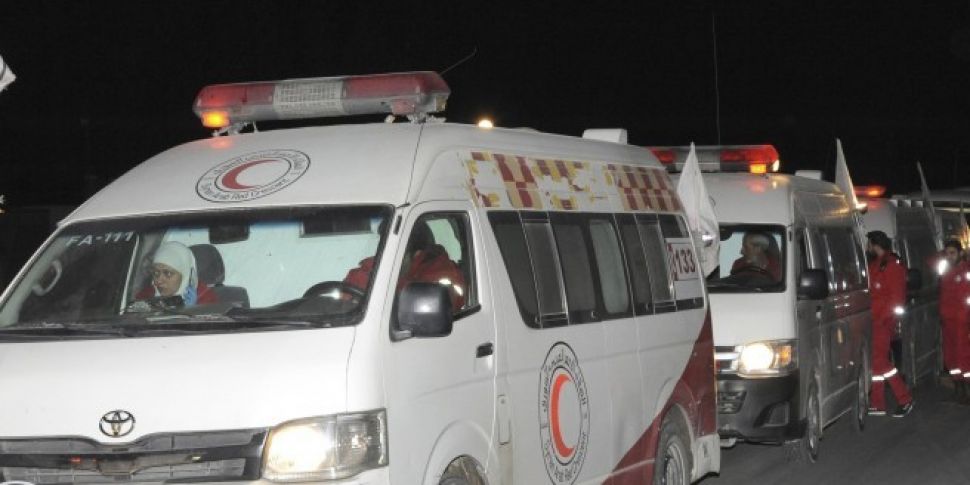The first Red Cross ambulances carrying critically ill patients including children with cancer have been allowed to leave a rebel-held enclave in Damascus.
The evacuation has been allowed by the Syrian Government following a prisoner exchange deal with the rebels.
The first four patients have left for treatment in local hospitals and over the next few days another 25 will follow.
These are the ones who have been identified as requiring the most urgent treatment.
Eastern Ghouta has been besieged by the Syrian army since 2013 and is one of the few areas in the country still under rebel control.
International humanitarian organisations fear the 400,000 residents still trapped inside the suburb face starvation.
Francesco Rocca, President of the International Federation of the Red Cross said the situation inside Ghouta was critical.
He said: "The situation is very difficult. Our last humanitarian access was at the end of November and we brought goods for 7,000 but there are more than 400,000 people in Eastern Ghouta.
"This is the reason why what is happening now is a sign of hope. On the other hand, we continue to ask for unhindered access to this area because the level of suffering has reached really a critical point.
"They are going to be treated in the Damascus children hospital with all the assistance of the medical doctors of the hospital and the staff of the Red Cross and families are there to verify that and if there is a need to move the children even abroad then we will do it.
"At the moment we have decided that the Damascus hospital was the best place in which they could be treated."
The evacuees included three children, as young as one-year-old, and one adult. The patients, who travelled with family members, needed immediate treatment for cancer, kidney failure and haemophilia.
Some patients may not be able to leave eastern Ghouta for government-controlled areas, because they either fear conscription into the army or detention for having lived or worked in opposition areas.
Hamish de Bretton Gordon, adviser to the union of medical care and relief organisations, welcomed the evacuations but warned much more needed to be done.
He said: "This is a small ray of hope, we've been in discussions with the Russians and the Syrian regime to try and extend a ceasefire so that aid can get in and also rebuilding can start.
"The Russians and Syrians have won the war and together with UK and US they have militarily defeated IS.
"What is now needed is massive amounts of aid to get to the people - 11 million displaced - and start reconstruction. The Russians and Syrians cannot afford to reconstruct Syria. It will be left to the West.
"The British Government has already allocated more than £1bn to do this. Boris [Johnson] has previously suggested British troops could be part of UN peacekeeping.
"We can enable reconstruction while the political process goes on. With reconstruction and aid means the political process will hopefully allow free and fair elections in next 18 months. So there is a ray of hope today."
For weeks, the UN has been calling on the government to allow some 500 critically-ill people to leave the suburb for treatment and to expand aid groups' heavily restricted access to the area.
Activists in eastern Ghouta have circulated photos online of severely malnourished children.
The UN says one in eight children in the district is going hungry, up from one in 50 in May.
Earlier this month, the UN said 12 people had died waiting for medical evacuation from eastern Ghouta. Their names were on a UN-drawn list submitted to the government six months ago.
The area was one of the first to rise up against Assad when Arab Spring protests spread across the country in 2011.









